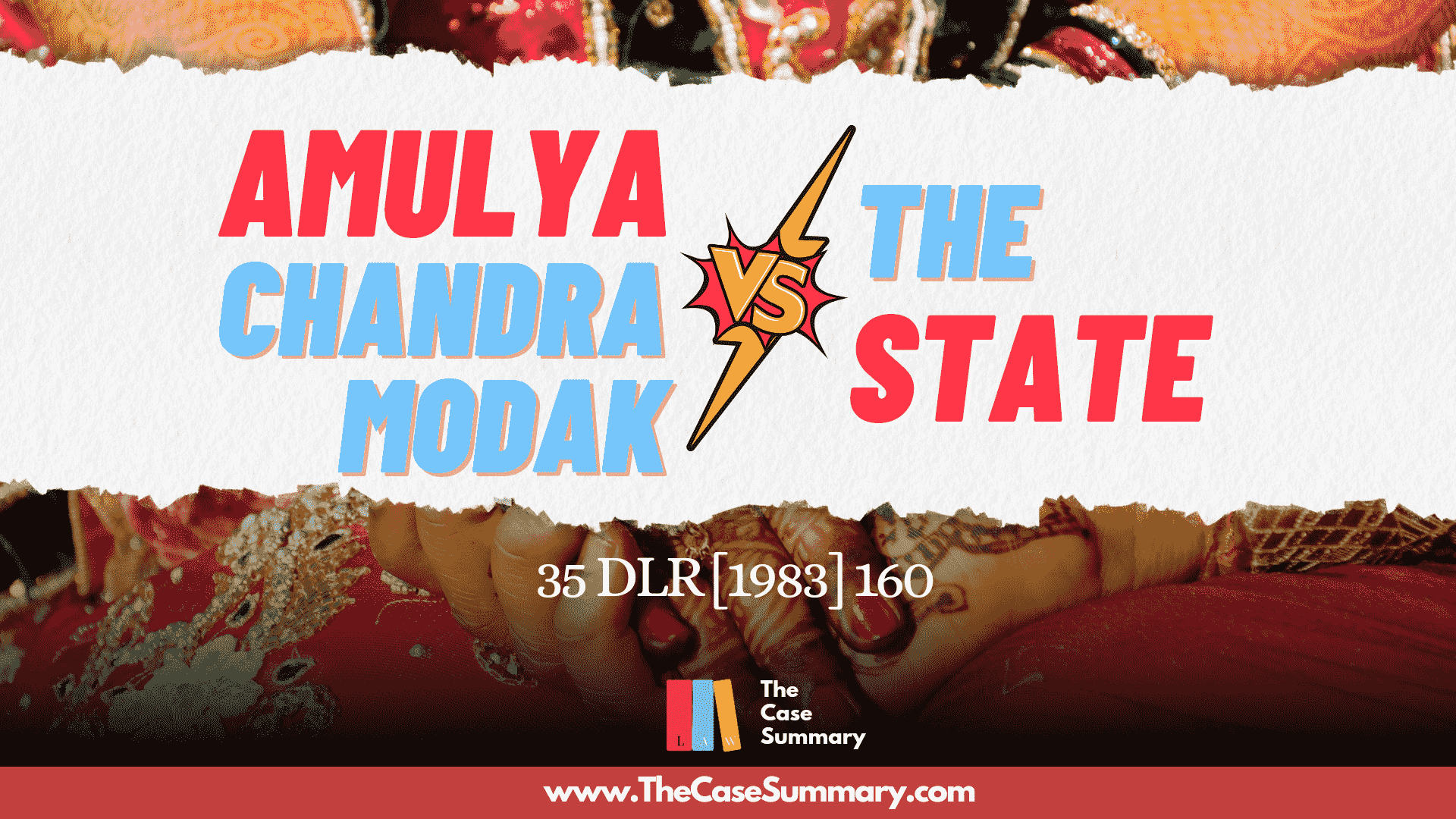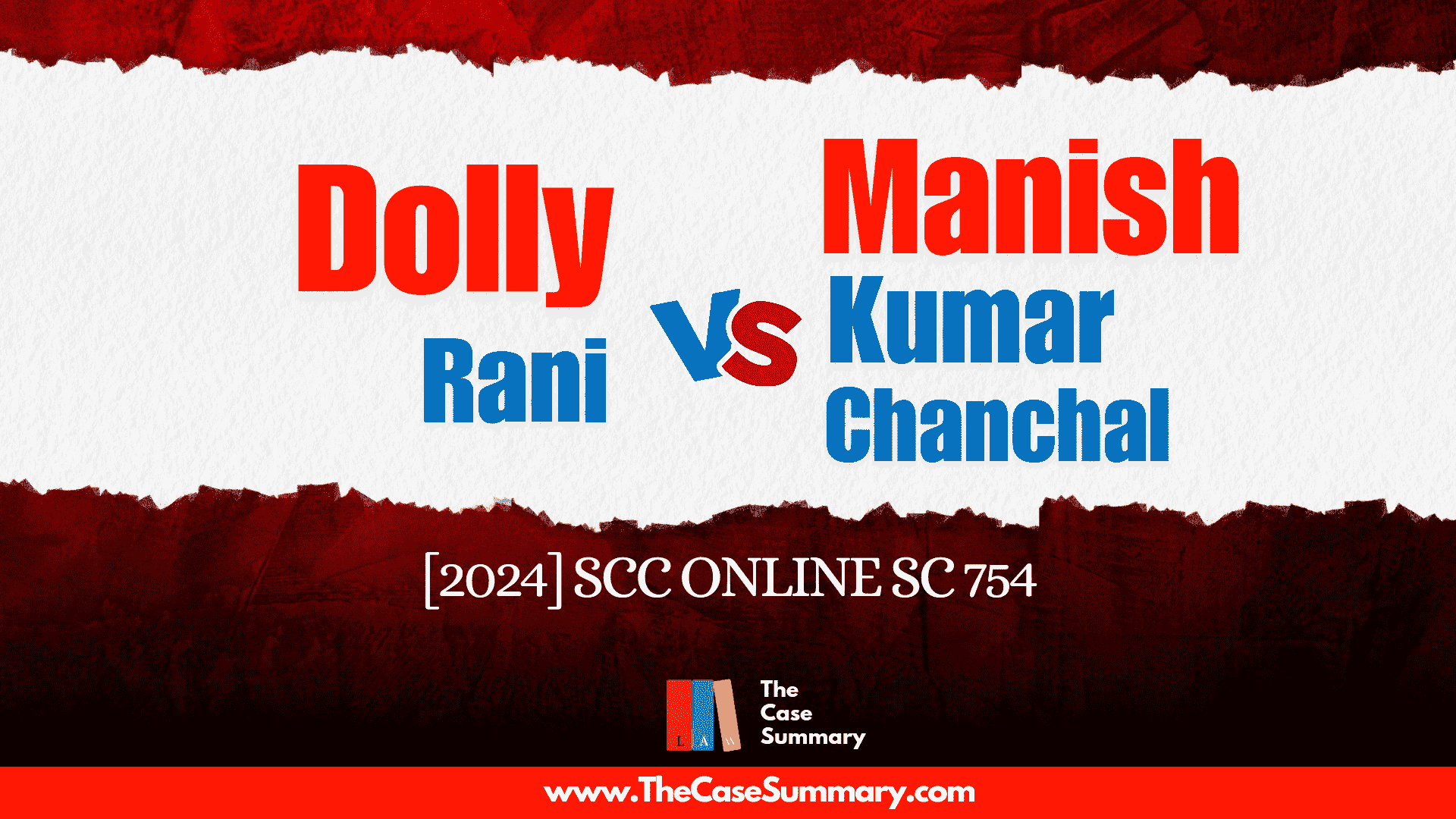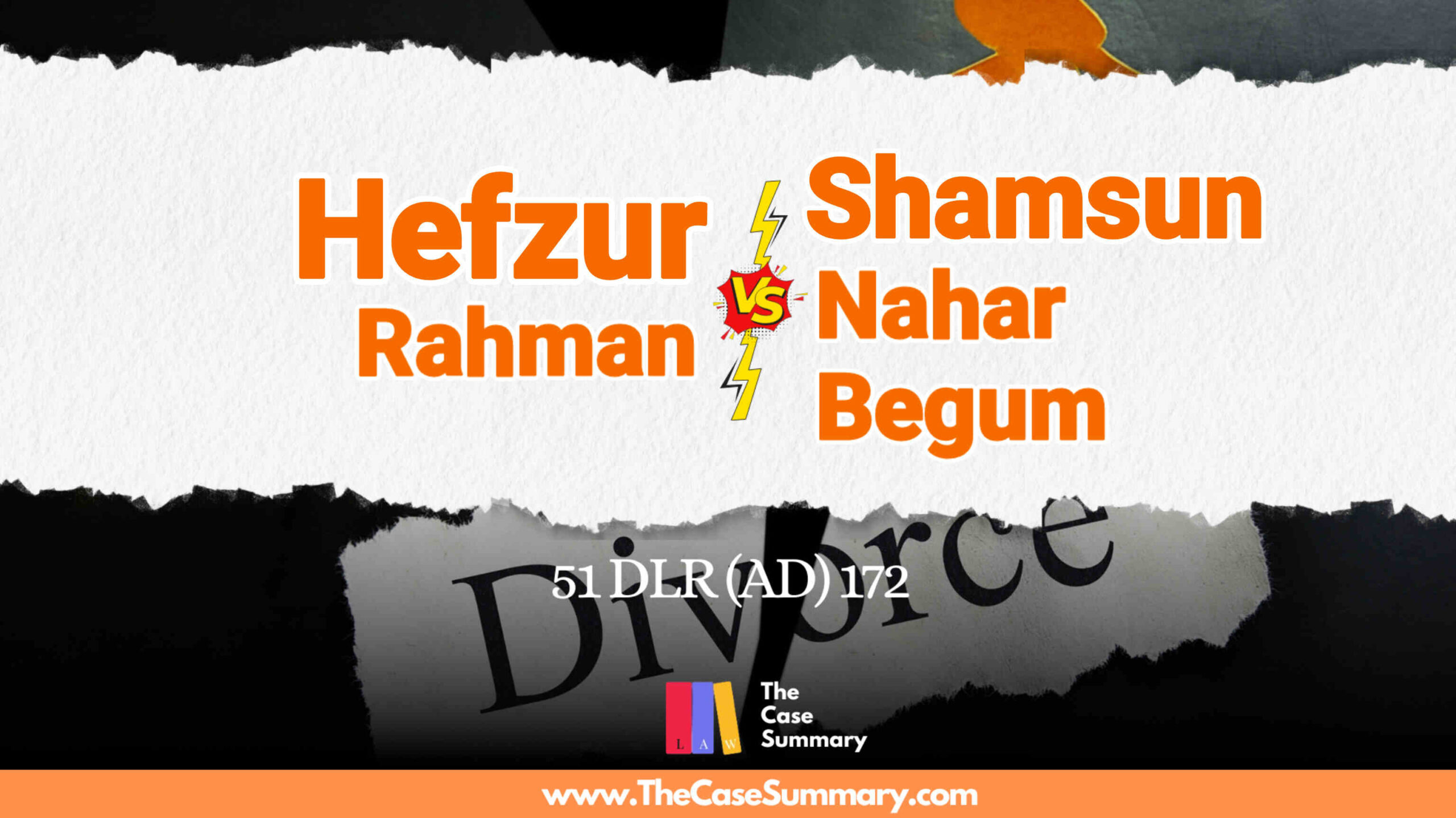Amulya Chandra Modak vs The State
Citation: 35 DLR [1983] 160
Jurisdiction : Bangladesh
Appellant : Amulya Chandra Modak (Defendant in the court of first instance)
Respondent : State (Plaintiff in the court of first instance)
Facts :
The complainant, Kalpana Rani, was the neighbor of the accused, Amulya Chandra Modak and was asked by the accused to live in his house to take care of his sick mother. While living together, the accused proposed her to marry him and promised to marry her ceremonially later. She was convinced and they exchanged garlands on a night. And he began cohabiting with her. Consequently, the complainant became pregnant but accused and his parents refused the marriage. She was subsequently expelled from their home.
Kalpana Rani claimed that Amulya induced her to cohabit by pretending they were married after a secret exchange of garlands. She also alleged that she became pregnant as the consequence of marriage.
The complainant’s father filed a complaint with the Magistrate and Amulya was convicted under Section 493 of the Penal Code, 1860. Later, the case was appealed to the High Court.
Issues :
1. Does the mere exchange of garlands constitute a marriage under Hindu family law?
2. Whether a woman, who is mature enough to understand the essentials of marriage under her religious perspective, but engages in a sexual relationship with a man based on a mere promise without fulfilling these essentials, can still be considered a victim under Section 493 or not?
Decisions :
On appeal, the court acquitted Amulya.
The court reasoned that for a valid Hindu marriage, two essential ceremonies must be performed. These are invocation before the sacred fire and saptapadi (seven steps around the fire). In this case, mere exchange of garlands didn’t constitute a marriage under Hindu family law. The essential rituals were not completed, and therefore, the court found that no lawful marriage had been taken place.
The court also emphasized that a young woman of 17-18 years should have known that a Hindu marriage requires certain formalities. And the Court noted that Kalpana, being mature, should have known that a secret exchange of garlands was not a valid Hindu marriage. The Court referred that mere promises of marriage without fulfilling legal ceremonies did not constitute deception under Section 493.
As a result, the court concluded that the woman was not deceived into believing she was lawfully married, and there was no violation of Section 493.
Judicial Recognition of the Essential Elements of Hindu Marriage :
In this case, the Supreme Court of Bangladesh, with the reference of Mullah’s Hindu Law (Eleventh Edition), judicially recognized the two essential elements necessary for a valid Hindu marriage. They are –
1. Invocation before the sacred fire.
2. Saptapadi, that is, the taking of seven steps by the bride groom and the bride jointly before the sacred fire.
Relevant Law :
- Penal Code, 1860
- Section : 493
Author :
1. Mohammad Hannan
Note : The Case Summary is a platform by the law students, for the law students. We aim to summarize the facts and decisions of various important cases in both Bangla and English with utmost caution. However, this platform is in no way a replacement for going through the complete judgements by the law students and we discourage any learner from relying on case summaries alone. Thank you



